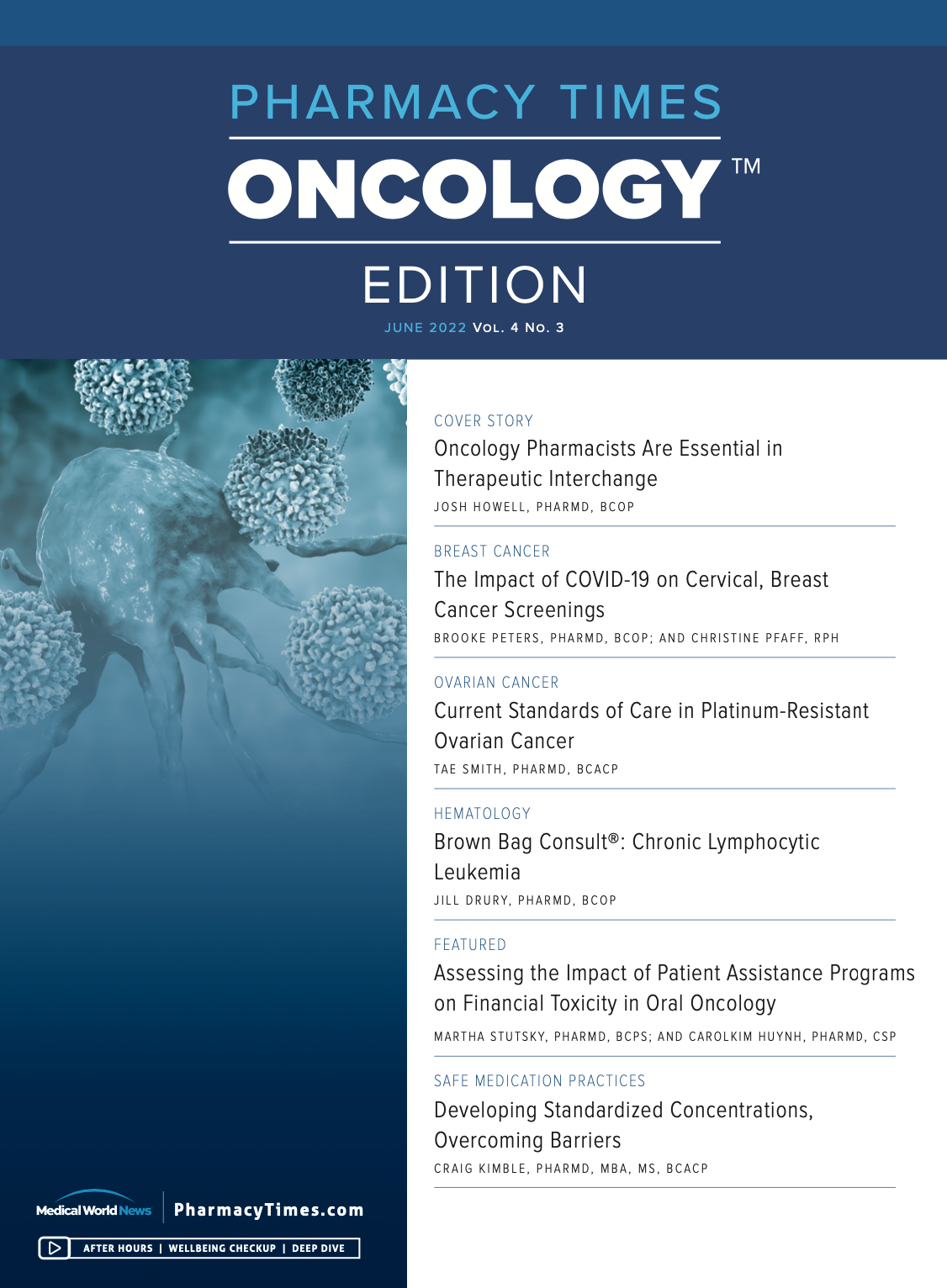Publication
Article
Pharmacy Practice in Focus: Oncology
Multiple Options Mean More Time for Patients With Indolent Lymphoma
The treatment landscape for relapsed/refractory MZL and follicular lymphoma (FL) is shifting from intravenous chemotherapy and monoclonal antibodies to oral oncolytic therapy or CD19-directed chimeric antigen receptor (CAR) T-cell therapy.
Follicular and marginal zone lymphomas (MZLs) are incurable malignancies requiring multiple lines of treatment over time. The treatment landscape for relapsed/refractory MZL and follicular lymphoma (FL) is shifting from intravenous chemotherapy and monoclonal antibodies to oral oncolytic therapy or CD19-directed chimeric antigen receptor (CAR) T-cell therapy. A trio of experts updated pharmacists on “Emerging Treatments for Indolent Lymphomas: The Role of the Oncology Pharmacist in Treatment and Toxicity Management” at the 2022 Hematology/ Oncology Pharmacy Association Annual Meeting.
Jordan Miller, PharmD, BCPS, BCOP, CPP, reviewed first-line therapy of FL and MZL, which consists of chemotherapy combined with an anti-CD20 monoclonal antibody. He explained that management of relapsed or refractory MZL and FL has largely shifted to oral oncolytic therapies which have diverse mechanisms of action. He presented data supporting FDA approval and inclusion in the National Comprehensive Cancer Network guidelines for oral oncolytic and CAR T-cell therapies. The immunomodulator lenalidomide in combination with rituximab is an option in both first-line and relapsed/refractory FL and MZL. The PI3K inhibitors idelalisib, copanlisib, duvelisib, and umbralisib are preferred options in third-line and subsequent therapy in FL and MZL. The Bruton tyrosine kinase (BTK) inhibitors ibrutinib and zanubrutinib are preferred treatment options in second-line therapy of MZL. Tazemetostat, an EZH2 inhibitor, is appropriate for third-line therapy of FL. Axicabtagene ciloleucel is a CD19-directed CAR T-cell therapy recently approved for third-line and subsequent therapy of FL. Dr Miller touched on bispecific antibodies under investigation in FL including mosunetuzumab, epcoritamab, and glofitamab and PI3K inhibitors under investigation in MZL, such as parsaclisib and zandelisib.
Dr Miller highlighted that the unique mechanisms of action for all of the novel therapies in FL and MZL correspond to unique adverse effect profiles. He noted class effects associated with BTK inhibitors include bleeding, atrial fibrillation, and pneumonia. Diarrhea, hyperglycemia, neutropenia, hepatotoxicity, and infection are observed in patients receiving PI3K inhibitors. Tazemetostat is associated with myelosuppression. Significant grade 3 or 4 adverse effects, including myelosuppression, infection, cytokine release syndrome, and neurotoxicity, are observed in patients receiving CAR T-cell therapies. Dr Miller explained that the transition from intravenous to oral therapy in lymphoma poses new challenges including facilitating medication adherence, mitigating drug−drug interactions, and monitoring and managing adverse effects. He reminded pharmacists that with the exception of lenalidomide, oral oncolytic therapies used to manage FL and MZL are subject to drug−drug interactions mediated by the CYP450 pathway.
Karen Fancher, PharmD, BCOP; Kelly Valla, PharmD, BCOP; and Dr Miller then applied the data to personalize treatment for patients with FL and MZL in a case-based panel discussion. They provided strategies to mitigate adverse effects and optimize care for patients receiving treatment with oral oncolytics, CD19-directed CAR T-cell therapy, and bispecific antibodies.

Newsletter
Stay informed on drug updates, treatment guidelines, and pharmacy practice trends—subscribe to Pharmacy Times for weekly clinical insights.






